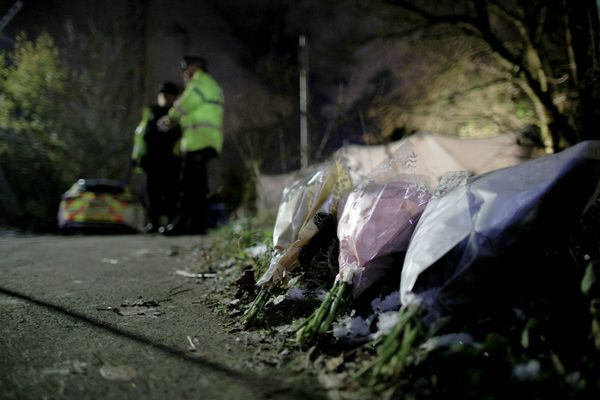
This article is an instalment in a new series, “Peter Dutton is racist”, on Dutton’s history of racism and the role racism has played on both sides of politics since the 1970s.
When John Howard called for reductions in immigration from Asian countries in 1988 in the name of social cohesion, the backlash against the then opposition leader was intense. Howard had earlier called for an end to multiculturalism as part of a “One Australia” policy, but his remarks calling for lower Asian immigration unleashed what Nationals frontbencher John Stone called “four or five weeks of absolute turmoil” — turmoil happily exploited by the Hawke government. Moreover, Howard’s stance was criticised by Liberal moderates and state leaders, as well as by former prime minister Malcolm Fraser. By May the following year, Howard had been ousted by Andrew Peacock.
Howard would later repudiate his remarks — he could do little else given the growing number of Chinese Australians in his own electorate. And he learnt that overt racism could be politically toxic. As prime minister, his exploitation of race would be coded and masked, with border control, property rights (to be protected against native title claims that would see people’s backyards seized) and “queue-jumping” refugees targeted instead of direct attacks on ethnic and racial groups. And Howard “understood” those who supported Pauline Hanson — who began her political life attacking Howard’s old target, Asian Australians — even if he didn’t agree with her.
Using other issues as code for racism was by no means novel. It was a standard technique of both Democrats and Republicans outside the South in the United States. If overt racism was acceptable below the Mason-Dixon Line, above it, politicians referred to “law and order”, “property rights” and freedom as code for the maintenance of brutal policing techniques and segregated real estate laws that prevented African Americans from moving out of ghettoes. But Howard elevated the use of racially coded issues to an art form in Australia.
Labor was not beyond learning the same lesson. While Howard had used his reputation for strength on border control as a cover for a high immigration program (prompting then-NSW Labor premier Bob Carr to complain that Sydney was “full”), in early 2013, Julia Gillard campaigned in western Sydney on a commitment to curtail 457 visas — visas that led, Labor argued, to an influx of exploited workers who undermined wages and kept apprentices out of jobs. These days, with both sides conscious of the crucial role of temporary workers in industries plagued by skill shortages, foreign students stand in as the unacceptable immigrant of choice.
As far back as 1988, to be deemed racist was unacceptably toxic. Howard rushed to insist he was nothing of the sort, even as he and his frontbenchers declared they wanted fewer Asian immigrants. But simply insisting one is not racist eventually became insufficient: one must insist one’s accuser is the real racist.
This, too, is an old trope — US civil rights legislation in the 1960s prompted not just opposition from segregationists but complaints about the lack of rights for white people, often phrased in terms like “victims’ rights” and property rights. Hanson has for several decades attacked Indigenous policies as discriminatory against white Australians, but the trope has gone mainstream over the past 10 years, with anything that could be labelled as some form of “special treatment” for Indigenous communities portrayed as a form of reverse racism or “divisive”.
An Indigenous Voice to Parliament was giving Indigenous peoples something white Australians didn’t have, and was thus racist, argued No supporters. In fact, any recognition at all of Indigenous peoples was racist, some argued. Any attempt to even discuss Indigenous disadvantage was racist — during the Voice campaign, Jacinta Nampijinpa Price argued that Indigenous peoples only got benefits from dispossession and colonisation, and there should be no separate policies for them.
The cheapening of the charge of racism isn’t confined to Indigenous issues. Tony Abbott and the Murdoch press accused Labor of racism in refusing to support Abbott’s now-forgotten free trade agreement with China (more recently, of course, Labor has been accused of being not Sinophobic enough). While he happily denounced Labor senator Sam Dastyari as “Shanghai Sam”, Scott Morrison accused Labor of racism in targeting Liberal MP Gladys Liu.
Nor is it confined to the right. While rightly keen to draw attention to institutional and systemic racism, the Greens have a tendency to find racism everywhere they look: AUKUS is imperialist, racist and colonialist. The British monarchy is racist. Parliament is racist. Inevitably, the Greens themselves are racist, according to former Green Lidia Thorpe (not to be confused with the time the Minerals Council claimed Bob Brown was xenophobic).
Hamas’ atrocities in October 2023 and Israel’s assault on Palestinians in Gaza and, now, the West Bank, have led to mutual accusations of racism by pro-Palestine and pro-Israel advocates, with the latter terming any criticism of Israel’s actions antisemitic. That charge plays off the undoubted role of antisemitism in some sections of the pro-Palestine movement, just as there are out-and-out racists in the Israeli government and local pro-Israel groups. Labor has suggested the Greens are antisemitic and support violence, while crying foul at Peter Dutton’s claims the government isn’t tough enough on Palestinian refugees fleeing Gaza.
The proliferation of charges of racism thereby dilutes the stigma that once attached to it. In a world where everyone and everything is racist, those who overtly traffic in racism no longer stand out. In the long run, the weaponisation of charges of racism disarms everyone.
Is Peter Dutton racist? Let us know your thoughts by writing to letters@crikey.com.au. Please include your full name to be considered for publication. We reserve the right to edit for length and clarity.







